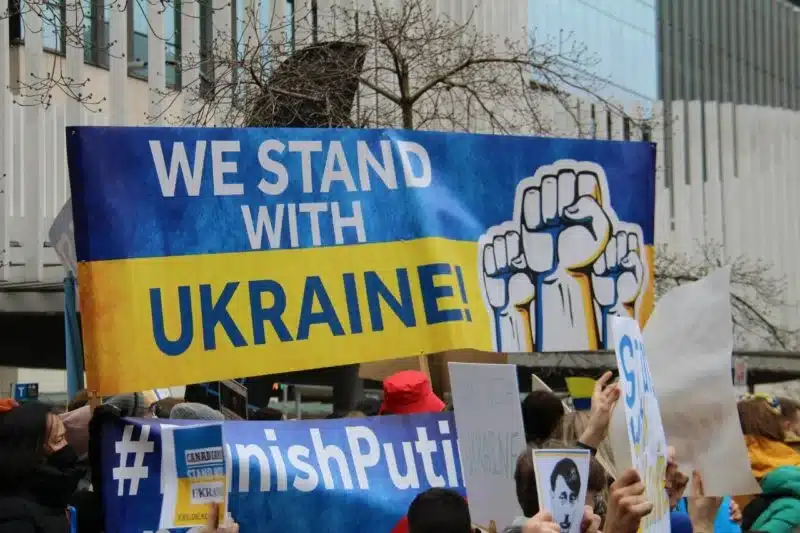Svitlana Zlenko, who fled Mariupol with her son, wrote a poignant post describing her experience in the war-torn nation and its crumbling healthcare system.
Her post which has been translated into English by Ukrainian-American economist Roman Sheremeta draws attention to the evolving health crisis in Ukraine.
“There is no connection in the city, no water, no gas, no ambulances. People with torn limbs bleed in their yards and no one can help them. These are peaceful people – our acquaintances and relatives. The dead are simply being covered by soil,” reads one of her posts, translated by Sheremeta.
“Doctors from Hospital No 3 (the part that survived) work heroically. They perform surgeries. They save people. The woman with the wounded hip was taken by the Red Cross within a day. I pray for her to survive. Two shells flew into our building and two into our yard,” reads another post.
She further adds that there is no food or medicine. “Pharmacies, grocery stores – everything is either looted or burned,” she writes. “A pregnant woman in the hospital who failed to give birth because a shell fell on the hospital and killed her.”
Zlenko’s posts have brought international focus on humanitarian crises in Ukraine.
The World Health Organisation (WHO) said on March 21 said that there have been six additional reports of attacks on healthcare in Ukraine.
“As of 20 March, we had verified 52 attacks on healthcare – in 25 days. That’s more than 2 attacks per day. This is unacceptable. Healthcare must always be protected.”
Kenneth Roth, Executive Director, Human Rights Watch, tweeted: “Russian forces are hitting Ukrainian hospitals and apartment blocks, devastating residential districts with no military value.”
WHO has said it is working closely with “our offices in Ukraine and neighbouring countries, as well as partners to rapidly respond to the health emergency triggered by the conflict and to minimize disruptions to the delivery of critical healthcare services.”
The WHO reiterated that during the crisis, health must remain a priority pillar, with health workers being protected so they can continue to save lives.
“It is imperative to ensure that life-saving medical supplies – including oxygen – reach those who need them,” WHO said in a statement. “Ensuring the health and well-being of all people lies at the core of WHO’s mandate and commitments in all situations, including humanitarian crises and conflicts.”
In its February report, Lancet, known as one of the world’s oldest and best-known general medical journals, said there was a danger that the ordinary lives and health of Ukrainians are forgotten as the crisis in the country intensifies.
After the fall of the Soviet Union in 1991, Ukraine had made significant progress in securing the health and wellbeing of its people. The country’s 44 million citizens and residents of Ukraine were entitled to receive free publicly funded health services. Primary care was delivered by family doctors, general practitioners, and community pediatricians. The under-5 mortality rate has fallen by more than half—from 18·3 per 1000 live births in 2000, to 8·4 in 2019. But challenges remain.
The conflict, the Lancet report said, had already jeopardized basic medical care and health in the eastern Donbas region where protests escalated into an armed conflict between Ukrainian forces and Russia-backed separatist groups in the aftermath of the 2014 Ukrainian revolution and Russia’s annexation of Crimea.
“They show you how buildings burn, but they don’t show you how people burn. Do I need to burn myself for you to believe that this has to stop? I beg you to stop this!” Zlenko writes in her post.


















Add Comment